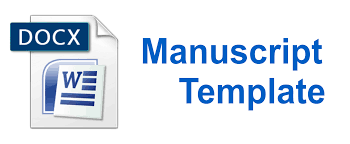Sosialisasi Optimalisasi Pengembangan Kaum Milenial Melalui Ekonomi Islam Di SMK Triguna Dharma Besitang Kabupaten Langkat
Keywords:
Islamic Economics, Millennials, SocializationAbstract
The millennial generation is a group that is very synonymous with digital technology. The millennial generation relies heavily on digital communication tools in their daily life. So that digital technology is no longer just a contemporary style but has become a necessity for various activities. This research was conducted to find out how far the potential of the millennial generation is in developing the Islamic economy. The research method uses a qualitative method which explains the behavior of Indonesia's millennial generation, especially at the Triguna Dharma Besitang Private Vocational School in digital technology and the potential that can be utilized for the development of the Islamic economy. The method of activity is by holding socialization seminars at the Triguna Dharma Besitang Private Vocational School. The results of activities in Community Service (PKM) activities can be concluded that the perceptions of Triguna Dharma Besitang Private Vocational School students about the Islamic economic system are very influential in everyday life. Because the Islamic economic system is in accordance with the provisions stipulated in Islam, which in practice prioritizes the welfare of the entire community. This can be realized if the application of Islamic economics starts from the millennial generation.
References
Aksyana: Jurnal Akuntansi Dan Keuangan Islam Fakultas Ekonomi Dan Bisnis Islam Universitas Suryakancana Analisis Pertumbuhan Keuangan Syariah Di Era Digitalisasi
Asyhad, M., & Handono, Wahyu Agung. (2017). Urgensi Literasi Keuangan Syariah Pada Pendidikan Dasar. Jurnal Studi Islam Miyah 13(1), 126- 143
Mulyaningtyas, I. F., Soesatyo, Y., & Sakti, N. C. (2020). Pengaruh Pengetahuan Tentang Bank Syariah Dan Literasi Keuangan Terhadap Minat Menabung Siswa Di Bank Syariah. Jurnal Ekonomi Pendidikan Dan Kewirausahaan, 53-66
Ojk. (2020). Roadmap Pengembangan Perbankan Syariah Indonesia 2020 – 2025. Jakarta: Otoritas Jasa Keuangan
Sumadi (2018). Peran Pendidikan Dan Pengenalan Sistem Ekonomi Syariah Kepada Generasi Muda Di Era Perkembangan Ekonomi Syariah. Jurnal Ilmiah Edunomika 2(2), 196-205
Syahputra, Angga., & Razali, Ramadhan. (2021). Sosialisasi Ekonomi Syariah Bagi Generasi Milenial. P-Issn : 2716-3377, E-Issn : 2721-9364 3(1), 19-28
Undang-Undang No. 21 Tahun 2008 Tentang Perbankan Syariah
Winario, M., & Al-Kusyairi, M. K. (2018). Pengenalan Ekonomi Islam Dan Akad-Akad Bank Syariah Di Smk Kab. Kuantan Singingi . Jurnal Pengabdian Masyarakat Multidisiplin, 216-223.
Yusuf Qardhawi, Norma Dan Etika Ekonomi Islam, Diterjemahkan Dari Buku Asli Berjudul “Daurulqiyam Wal Akhlaq Fil Iqtishadil Islami” Penerjemah Zainal Arfin Dan Dahlian Husin, Jakarta: Gema Insani, 1997, H. 31.
Zulaikha, S. (2013). Pengaruh Globalisasi Ekonomi Terhadap Hukum Ekonomi Islam Di Indonesia. Jurnal Adzkiya, 1(1), 1–14









